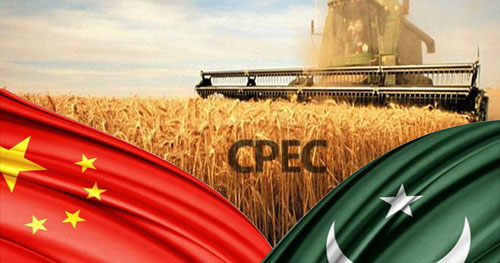A seminar on “Pak-China Agriculture Cooperation under CPEC” was jointly organized by the CPEC-Agriculture Cooperation Center, PMAS-Arid Agriculture University Rawalpindi and the Asian Institute of Eco-civilization Research and Development (AIERD), to explore ways to boost agricultural development, and understand opportunities offered by agricultural cooperation under CPEC.
Addressing the seminar, Prof. Dr. Muhammad Azam Khan, Director, CPEC Agriculture Cooperation Center, said that China has made tremendous progress in the field of agriculture in the last few years, which has led to a significant increase in its agricultural output. He said that through CPEC, not only revival of agriculture sector in Pakistan can be ensured but also food security by bringing innovation in it.
In his address Prof. Dr. Qamar-uz-Zaman, vice chancellor PMAS-AAUR urged Pakistani government to strengthen mutual exchanges with its Chinese counterparts and facilitate Chinese companies to work in the agricultural sector. Being one of the most vulnerable countries to climate change, Pakistan needs to adopt climate-smart agriculture techniques as the challenges posed by climate change have not only gravely affected the production and quality of crops, but also created numerous problems for farmers, he said.
He further said that with the increase in value addition processing in the agricultural sector, Pakistan would not only be able to manufacture its products in accordance with the international standards but also by exporting them, a significant increase in the national exchange rate would be possible.
Dr. Gu Wenliang, agricultural counselor at the Chinese Embassy in Pakistan while addressing to the participants said, China is continuously introducing new agricultural technologies, machinery and modern varieties of crops in Pakistan under CPEC, which is improving Pakistan’s agricultural sector day by day. He also proposed to formulate a research policy to enhance people-to-people contacts, export Pakistani agricultural products to China, and promote agricultural and industrial cooperation between the two countries.










